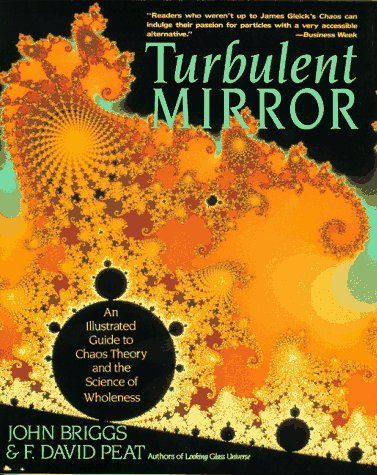
Turbulent Mirror An Illustrated Guide to Chaos Theory and the Science of Wholeness
Until recently, such phenomena as the volatility of weather systems, the fluctuation of the shock market, or the random firing of neurons in the brain were considered too "noisy" and complex to be probed by science. But now, with the aid of high-speed computers, scientists have been able to penetrate a reality that is changing the way we perceive the universe. Their findings -- the basis for chaos theory -- represent one of the most exciting scientific pursuits of our time. No better introduction to this find could be found than John Briggs and F. David Peat's Turbulent Mirror. Together, they explore the many faces of chaos and reveal how its law direct most of the processes of everyday life and how it appears that everything in the universe is interconnected -- discovering an "emerging science of wholeness." Turbulent Mirror introduces us to the scientists involved in study this endlessly strange field; to the theories that are turning our perception of the world on its head; and to the discoveries in mathematics, biology, and physics that are heralding a revolution more profound than the one responsible for producing the atomic bomb. With practical applications ranging from the control of traffic flow and the development of artifical intelligence to the treatment of heart attacks and schizophrenia, chaos promises to be an increasingly rewarding area of inquiry -- of interest to everyone.